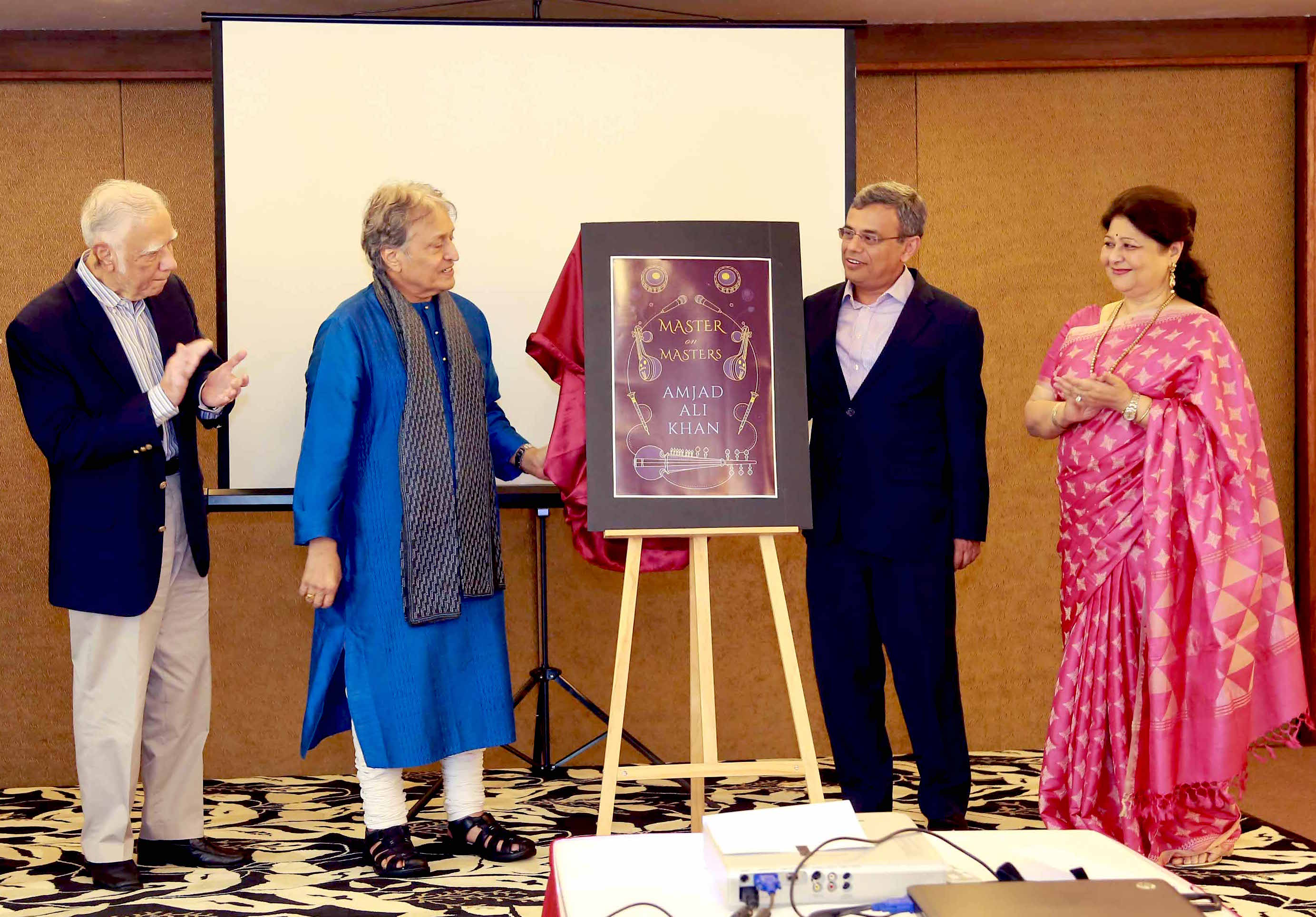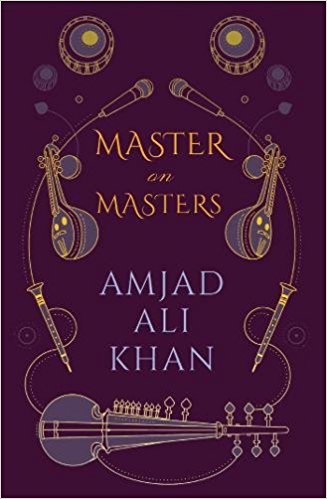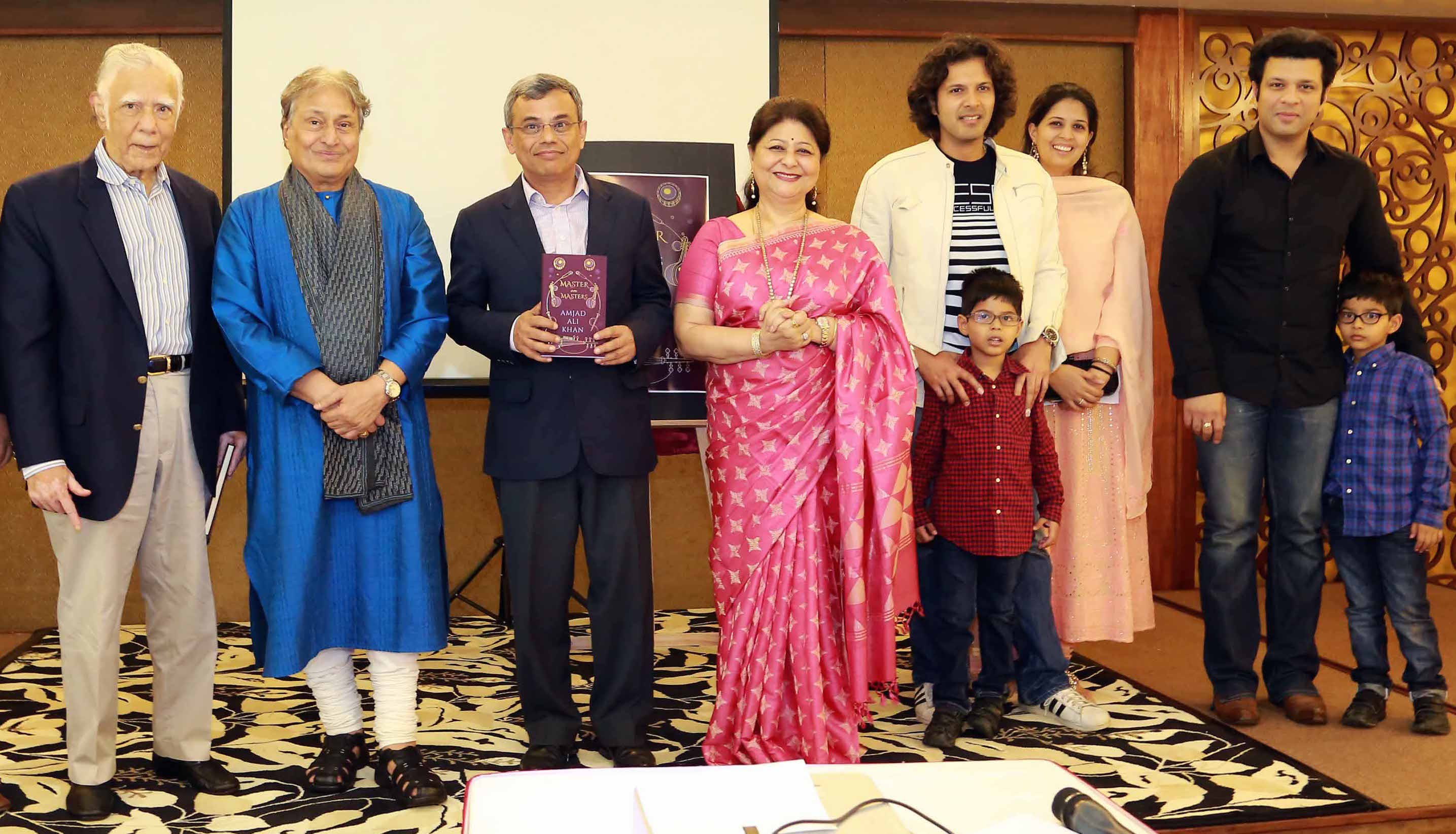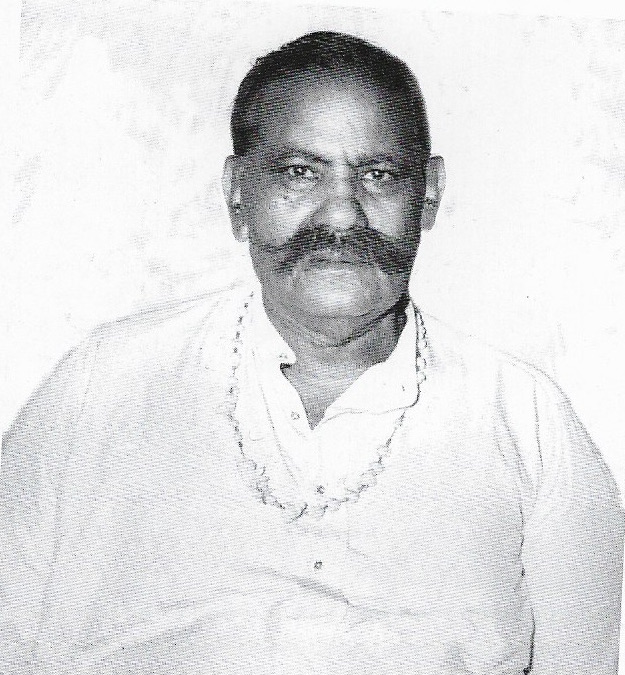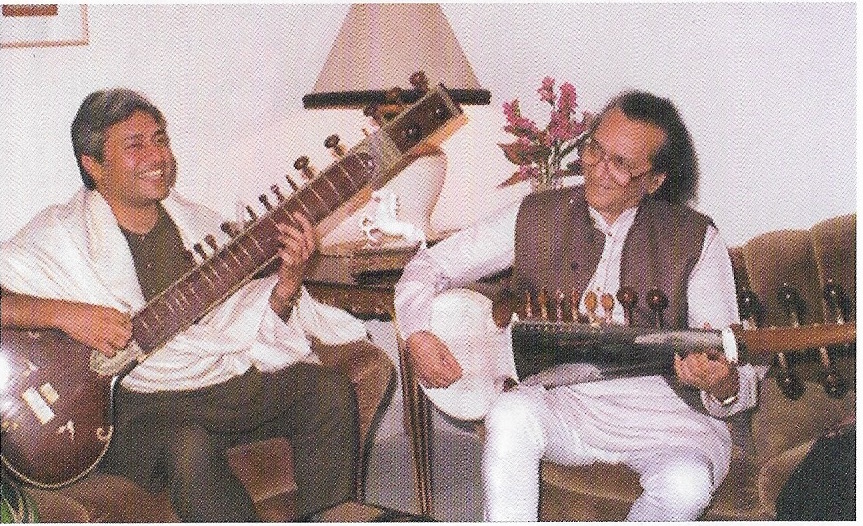There is no better person in the world than Ustad Amjad Ali Khan to talk about 12 of the most iconic musicians and singers India has ever produced. Hailing from the sixth generation of Kirana gharana Ustadji or Khan Sahab, as he is fondly and respectfully called, was in Singapore to launch his book, ‘Master on Masters’. A tribute to Pandit Ravi Shankar, Pandit Bhimsen Joshi, Ustad Bade Ghulam Ali Khan, Vidushi Kesarbai Kerkar, Ustad Amir Khan, Begum Akhtar, Vidushi M S Subbulakshmi, Ustad Bismillah Khan, Ustad Alla Rakha, Pandit Kishan Maharaj, Pandit Kumar Gandharva and Ustad Vilayat Khan.
The Institute of South Asian Studies (ISAS) hosted Ustadji at the Singapore Indian Association’s (SIA) Vijaya Hall with his wife Subhalakshmi Khan, his musician sons Amaan Ali Khan and Ayaan Ali Khan, Ayaan’s wife Neema Sharma and two expectedly, extremely restless grandsons Zohan and Abeer.
Ambassador Gopinath Pillai, Chairman, Institute of South Asian Studies, NUS said, “While ISAS is known for indicators of political academics it is not often that we foray into culture. We have started doing it by finding extra time beyond our usual scope of work. We are very blessed to be able to launch this book by Ustad Amjad Ali Khan. It is a first for ISAS to launch a book around music, which is a special book as it is written by a musician himself, a practioner.”
High Commissioner of India to Singapore, HE Jawed Ashraf welcomed Ustad Amjad Ali Khan. “Ustadji your visit to Singapore and your presence among us this week has added a sheen to our midsummer weekend. Thank you for being with us,” he said.
Reminiscing about his first meeting with the Ustad in 1993, Ashraf added, “He was already a global icon, was supposed to perform in the Frankfurt Cathedral. He took time to explain to me, an ignorant diplomat, the intricacies of classical music in its most simple manner. Like a patient teacher who wanted to share and explain the joy and beauty of music. Later on, towards the evening he asked me where will my wife be sitting. I asked him, why? And he said that I want to see her before I strike the first note.”
Ustad Amjad Ali Khan, clearly a family man looked happy seeing all of them in the room and by the warm reception by over 150 people present for the launch, “My entire family is very honoured and happy to be here. We love Singapore. We always look forward to coming to Singapore. I am grateful to Mr Gopinath Pillai for hosting this event. He is such an icon of Singapore.
I am grateful to my family for helping me and guiding me in every step of the way in writing this book. I felt that I should share my thoughts (through the book) about these great musicians. It is because of them that our music became so popular.” Ustadji added.
Born in the historical city of Gwalior in the state of Madhya Pradesh (MP), Ustad Amjad Ali Khan is very proud of his origins and mentions in his book the names of Ustad Amir Khan, Ustad Jehangir Khan, Ustad Abdul Hamil Jaffer Khan and Lata Mangeshkar all from another city of MP, Indore.
Speaking at the launch, Subhalakshmi Khan pointed out that, inspired by the birthplace of the German music composer Beethoven in Bonn, Ustad Amjad Ali Khan created the Sarod Ghar museum in his ancestral home in Gwalior. “A unique institution devoted to musical heritage. A project close to my heart,” as he describes it in the book.
In addition to a brilliant personal, anecdotal and musical perspective into the work of the great artistes, the book is filled with Ustad Amjad Ali Khan’s own take on the nuances and fineries of Indian classical music. His views on being a purist musician versus being successful, era of 78 rpm recordings, Guru-Shishya parampara (tradition of teacher and student), performing in front of independent India’s first Prime Minister Pandit Jawahar Lal Nehru, Indira Gandhi, royalty like the Begum of Bhopal, playing with his father Ustad Hafiz Ali Khan, Ustad Allah Rakha, Pandit Kishan Maharaj and other great musicians are all enumerated in the chronicle.
Here are some excerpts on two out of 12 artists featured in, ‘Master on Masters’.
Bade Ghulam Ali Khan
He was perhaps among the few classical vocalists who understood the pulse of the raga and the audience too and decided the duration of every raga and the presentation accordingly.
His voice had a distinct allure and, in time, he became one of the most popular and respected vocalists of India. He made Indian classical music interesting and enjoyable. In 1960 he recorded two songs for the famous Hindi Film Mughal-E-Azam. He had sung Raga Sohni and Rageshwari. Filmmaker K Asif, along with music director Naushad had to convince Khan Sahab to accept their offer. In those days, when singers like Lata Mangeshkar and Mohammad Rafi were paid Rs 500 (SGDs 11) per song, Khan Sahab demanded Rs 25,000 (SGDs 545) but K. Asif agreed immediately.
Pandit Ravi Shankar
The youngest of five brothers, he started off not as a sitarist but as a dancer, in both solo and ensemble performances, in his brother Uday Shankar's Paris-based dance troupe. However, God Almighty had different plans for Raviji. At the age of eighteen, Ravi Shankar gave up dancing to study sitar playing under Ustad Allauddin Khan, the court musician of Maihar, a small town in Madhya Pradesh.
Besides dancing, Ravi Shankar was able to become a versatile musician, playing diverse instruments such as the sitar, sarod, flute and drums. During his formative years in Paris, he met many leading European musicians including the great Catalan cellist Pablo Casals, Spanish guitar maestro Andres Segovia and Russian violinist Jascha Heifetz.
His popularity grew with his meeting with The Beatles. George Harrison became his disciple. This association brought Ravi Shankar to the highest point in his career.
‘Master on Masters’ is a great read for all who want a crash course on Indian music traditions, history and gurus. A must read for lovers of Indian classical music. The book can be bought on Amazon: https://www.amazon.com/Master-Masters-Amjad-Ali-Khan/dp/0670089540

